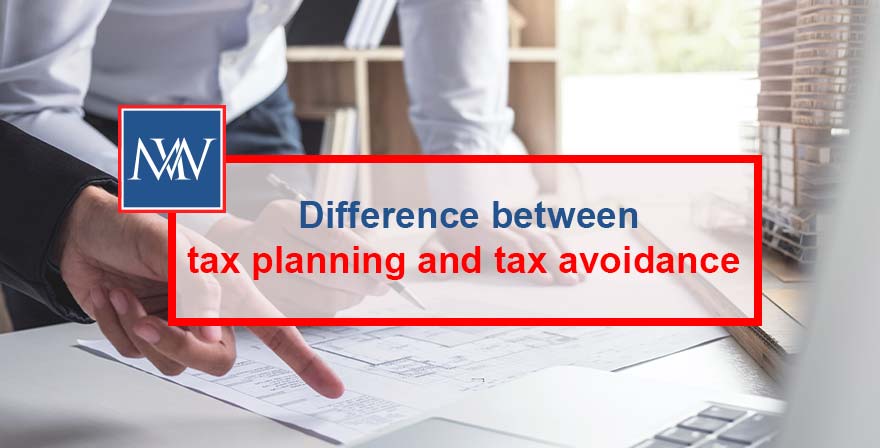
Difference between tax planning and tax avoidance
Recent years have seen HMRC stepping up its efforts to reduce what is termed the ‘tax gap’ (defined as being the amount of tax that HMRC think should, in theory, be paid in comparison with the amount actually paid) which from statistics published in February for the 2019/20 tax year is believed to be £35 billion. Tax lost due to ‘failure to take reasonable care’ accounts for the largest proportion at 19% (£6.7 billion), tax avoidance accounts for the smallest proportion at four per cent (£1.5 billion), while the cost of tax evasion was £5.5 billion.
Definition
Tax evasion is where someone acts against the law to escape paying tax that should be paid whereas tax avoidance is the exploitation of rules to reduce tax that would otherwise be payable. It is sometimes difficult to differentiate between the two and as Treasury Minister David Gauke admitted in 2010, “there will be occasions when the line is a little blurred.”. Tax evasion usually entails taxpayers deliberately misrepresenting or concealing the actual state of their affairs to the tax authorities to reduce their tax bill (illegal). Consequently, in practice, a good deal of uncertainty can often attach to the question as to whether a particular arrangement constitutes ‘tax avoidance’ and, if so, whether it is to be regarded as ‘acceptable’ (tax planning or tax mitigation) or ‘unacceptable’ (aggressive or abusive avoidance).
There is no specific offence relating to tax evasion to be found anywhere in the Taxes Acts so HMRC relies on common law when prosecuting. Very occasionally a taxpayer may be prosecuted under the Theft Act 1978 for false accounting (or possibly the Fraud Act 2006). The majority of tax evasion cases are brought under the common law criminal offence of ‘cheating the public revenue’. Such cases have established that for the offence to be committed there does not have to be a dishonest act. An omission such as the failure to account or register for VAT will suffice provided that the act or omission was intended to reduce the tax bill. There is no maximum penalty for such an offence if found guilty so a defendant could be sentenced to life imprisonment and have to repay the tax lost to HMRC as well.
Different counter methods
Over the years different governments have tried varying methods to counter tax evasion. Before 2004 the legislation was aimed at specific avoidance schemes as and when they came to light, but since that date the target has been on a more general basis. The ability of HMRC to issue ‘follower’ and ‘Accelerated Payment Notices’ (‘APN’) has built on this ‘general’ theme being aimed at marketed avoidance schemes. Under this rule a ‘follower’ notice is issued where a dispute arises from a taxpayer’s use of an avoidance scheme that is either the same or has similar arrangements to one that HMRC has previously successfully challenged in court. They are designed to prevent other scheme users from delaying settlement of disputes that have no chance of success. HMRC may also issue an APN, where the taxpayer is required to pay the disputed sum ‘up front’, before their assessment is resolved.
Coming more up to date HMRC estimates that the level of fraud and error in Covid-19 support schemes amounts to approximately £5.8 billion against a spend of £81.2 billion. In the publication detailing HMRCs ‘approach to error and fraud’ in the covid schemes, it describes the lengths HMRC went to minimise fraud at the outset including the use of risk assessment and ‘intelligence profiles’ confirming that over 29,000 claims and registrations were blocked by use of these methods.
The majority of fraud or evasion practices are reported to HMRC by employees and by enabling employees to check whether they were included in their employer’s CJRS claim HMRC has received more than 30,000 reports of fraudulent claims.
For more information, Book a Free Consultation
Need Accountancy Support?
For information on bespoke training, or if you have any other questions for Makesworth Accountant, please fill in your details below
















 151
151